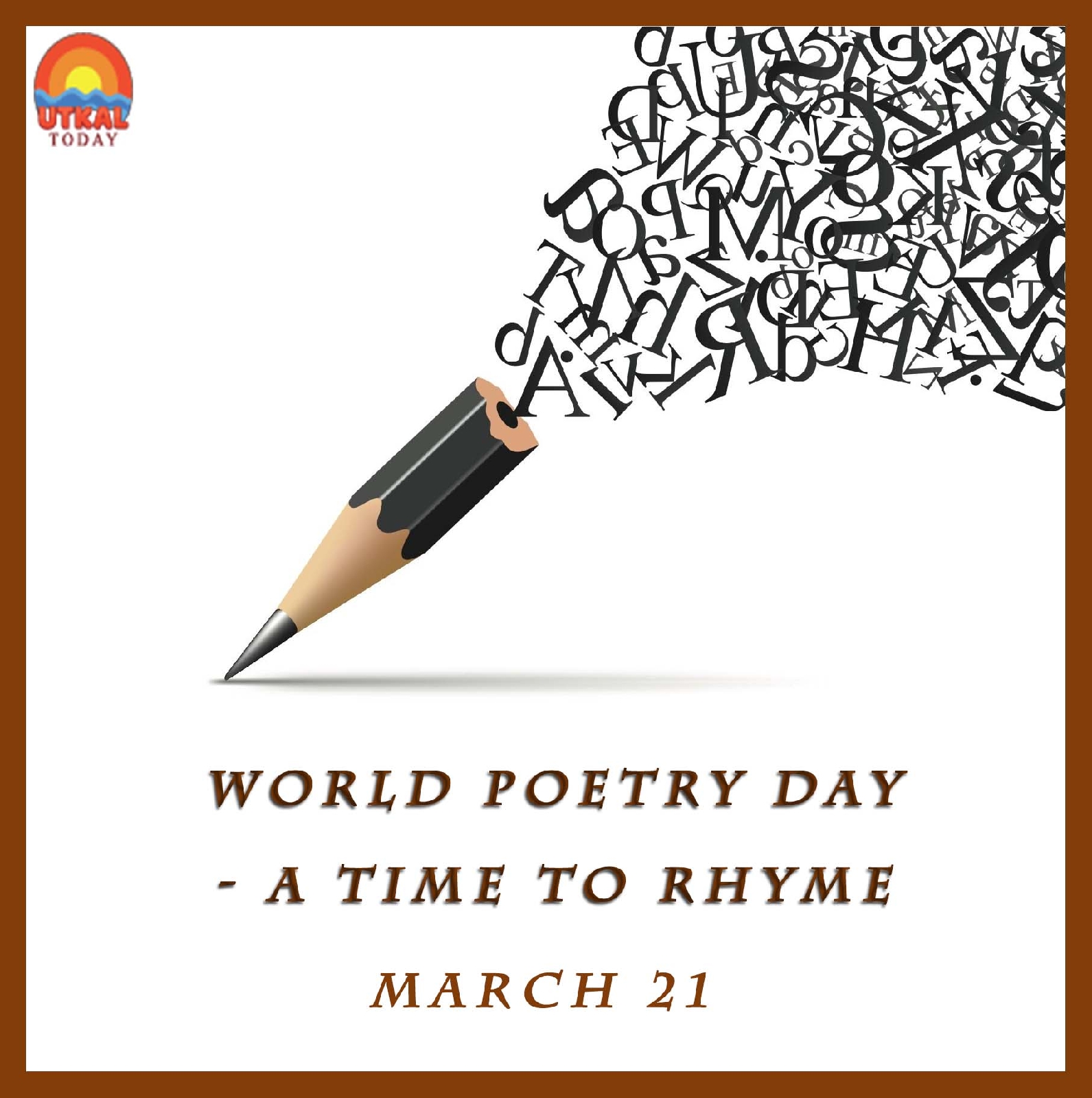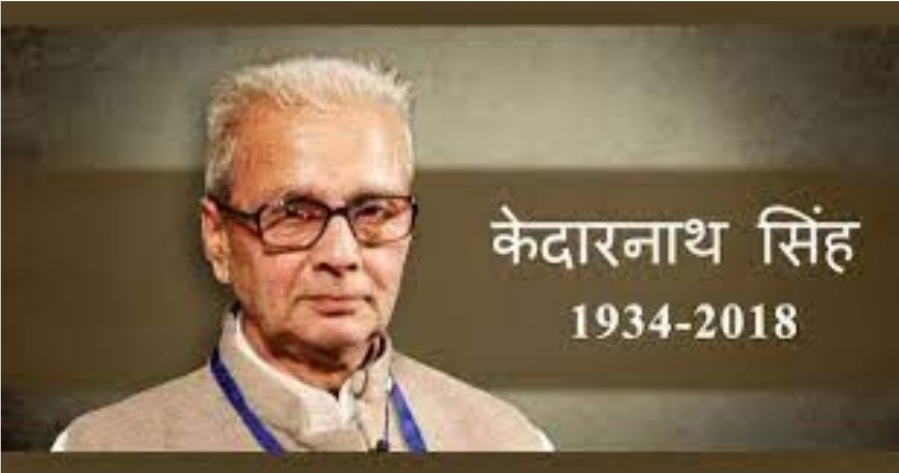POESIE:THE AMBROSIA OF LITTERATEURS
POESIE:THE AMBROSIA OF LITTERATEURS
“Poetry is the spontaneous overflow of powerful feelings; it takes its origin from emotions recollected in tranquility.”(William Wordsworth, Preface to Lyrical Ballads)
“A drop of ink may make a million think.”(Lord Byron)
What is the sole attribute which distinguishes literature students from their counterparts of other disciplines? It is their propensity in transmuting their imagination to exquisite poetic compositions. Verse makers brag of the poetic muse- their esoteric possession which stimulates them to create masterpieces out of mediocre elements. Through his poetic works, a poet, gives an outlet to his uncurbable desires, ineffable emotions and indelible memories. This poetic inspiration ,which Plato condemns as unreliable, is the life blood of every poet. The invocation of muse is more than a ritual for a bard, muse becomes the beloved to her poet and awakens his creative faculty. The enigmatic love which a male poet and his female muse cherish gets consummated in a poetic composition.(Though this hypothesis is highly debatable). Plato and his disciple Aristotle call poet an imitator since the practitioner of mimesis, derives his prime pleasure in impersonating nature. His deftness lies in transporting commonplace things to lofty pedestals.
“There is pleasure in the pathless woods,
There is rapture in the lonely shore,
There is society where none intrudes,
By the deep sea and music in its roar,
I love not Man the less but Nature more.”(Lord Byron, Childe Harold's Pilgrimage)
Many a critic claim that poetry is innate and can be only be polished through praxis. Aristotle also opines that it is “the instinct for harmony and rhythm” which makes a poet conceive and create his metrical composition. The words which emerge from a poet’s pen are of an enduring kind-Universal and Eternal. The fruits of divine inspiration! Horace, in his Ars Poetica, talks at length about Poetry, its function, content and formal aspects. He insists on poetry being a perfect amalgam of fictitious and factual elements, with fancy or fiction predominating. This dutiful Roman Poet never overlooked the utilitarian aspect of poetry and envisaged that poetry would inculcate commendable qualities in his countrymen. Nevertheless his accolades are solely reserved for the adept poets who combine aesthetics with didacticism. He says, “Poets desire either to improve or to please, or to unite the agreeable and the profitable… you will win every vote if you blend what is improving with what pleases and at once delight and instruct the reader.” This adroitness immortalizes a poet and disseminates his glory across the globe.
“A poet is a nightingale who sits in darkness and sings to cheer its own solitude with sweet sounds.”(P.B. Shelley, A Defense of Poetry)
“Our sweetest songs are those that tell of saddest thoughts.” (P.B. Shelley, To A Skylark)
Longinus, the harbinger of Romance-the very essence of poetry, defined Poesy in a novel vein. Through his path-breaking treatise On The Sublime, this Roman scholar ascribed a new end to poetry which is to “transport a reader” which is different from the hitherto accepted didactic and aesthetic approaches. He argued that poetic compositions are supposed to be sublime. In his own terms , “Sublimity consists in a certain distinction and consummate excellence in expression, and it is from this and no other source, that the greatest poets…gained their eminence and immortal fame.” He was not insistent on poetry appealing to the readers’ rationale, nevertheless the ultimate goal of poetry should be to transport any reader to an ecstatic world. This magical spell cast by the writer would persuade a reader to think in the way the poet wants him to. This irresistible alchemy impedes the reader from being critical.
“Poetry…should strike the reader as a wording of his own highest thoughts, and appear almost a remembrance.”(John Keats, Letter to John Taylor.)
Some critics opine that since poetry is an innate metaphysical boon, external rules might restrict the poet’s imaginative faculty and curb its potential. Yet others emphasize on strict adherence to rules and insist on formal precision. Longinus has his say in this respect as well. In his stand point, only a noble mind can produce virtuous thoughts and ensue wholesome poetry. Though he says that these thoughts are primarily gifted, it can be enriched by constant pondering and exposal to lofty thoughts and ideas of great men of yesteryears. Only grandeur in thoughts can result in the expression of splendid ideas. Anticipating the Romantic poets, Longinus voiced the inevitability of frenzied emotions in this enterprise. For him, correct emotions in the proper place expressed in appropriate language can only produce the desired effect. This can also be a product of a sublime soul and mind.
“If poetry does not come as naturally as leaves to a tree, then it better not come at all.” (John Keats)
Longinus differs from Romantics in his emphasis on Poetic Diction. Being a well acclaimed orator, he attested utmost significance to figures of speech. He did not intend to add artificial ornamentation for pretentious grandeur. His prime objective was to add a tint of dissimilitude to similar elements whereby casual aspects bring forth an air of strangeness. For him, “A figure is effective only when it appears in disguise.” Having said all of these, this Romantic with a stint of Neo-classicism insists on the nobility of composition which implies that the aforementioned features should be clubbed together in propriety during the production of a sublime piece of art. Therefore, poetry should be a harmonious entity which entices a reader and elevates his soul.
“The poetry of the earth is never dead.”(John Keats)
The Bards and the High priests of Romanticism are the ones who, according to Victor Hugo, brought “Liberalism in Literature.” Poetry, which was hitherto smothered by the rigorous rules of neo-classicism, was allowed to unravel its plume and fly towards a world of imaginative and emotive fervor. Romantic poets like Wordsworth, Coleridge, Keats, Shelley and Byron redefined poetry in terms of liberty and nature. The euphoric pursuit of these wayward souls only solicited pleasure from Poetry. Romantic poets opined that poetry is a common man’s endeavor. Echoing Roman Horace, Wordsworth said that poetry should be written in the language of laymen and the themes being taken from familiar everyday elements. Wordsworth contends, “choose incidents and situations from common life, and to relate or describe them, throughout, as far as possible in a selection of language really used by men, and, at the same time, to throw over them a certain colouring of imagination.”
“There is a harmony in autumn, and a luster in its sky,which through the summer is not heard or seen, as if it could not be,as if it had not been.”(P.B.Shelley)
The scholars who attack Wordsworth for his ambivalent and ambiguous statements on poetic diction should have noted that the master romantic insisted on diction inspired by passion and not the ostentatious ones like the Neo-classicists. Coleridge, the companion of Wordsworth talked of Poetic faith in his Biographia Literaria. He posited that adding supernatural elements to poetry can enhance the dissimilitude and thereby increase the elgance of the poem, Nevertheless, only a reader’s “willing suspension of disbelief” can ensure this experience. Though Poetry is beyond description, one can say that true poesy gives us an insight into a poet’s impregnable soul and inscrutable psyche. Poets never demand their readers to covet their works, yet the seductive wings of poesy run deep into our souls and curb our literary appetite. As long as the world produces sensible readers poets and their works will remain enshrined and immortalized in our canon. We are proud to be a part of this grand tradition, Aren’t we?:) ;)
-Santhwana Thomas










Comments
Post a Comment